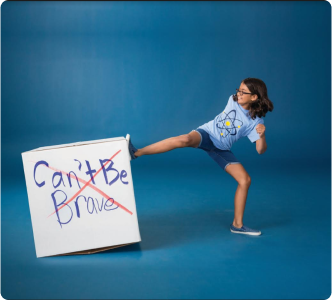The Battle For Public Opinion
Hello and welcome back to my weekly blog post!
Today we are talking about the Battle for Public Opinion, specifically talking about our vivacious online landscape is transforming the dynamics of public opinion formation and communication strategies. The internet is a huge landscape in the digital age that allows anyone the freedom to Provide examples of successful or controversial online campaigns that have significantly influenced public opinion and explain the underlying communication tactics. Social media allows anyone to release rapidly spreading information that anyone with an online presence has the ability to view. These millions of posts from anyone, influence public opinion heavily and have entirely shifted the dynamics of how the public forms their opinion, and communicates. There are many consequences from this type of communication including the difference in democracy, interpersonal relationships and the overall well-being of society.
Democracy is at risk because social media has become a large and critical part of politics in todays digital age, where false information and targeted ads can appear on specific groups of users. False information and propaganda can easily be spread to millions of people in a matter of seconds, making it harder for people in times like Presidential Elections to sift out the differences between fake news and unbiased information. Interpersonal relationships are struggling because of the unrealistic ways people are able to portray themselves on social media and the internet in general. There is no way for users to tell what content is realistic/relatable or fabricated therefore leading to feelings of inadequacy when the real world and online world don't align. Society is in trouble with the progression of social media because artificial intelligence in social media creates algorithms for every user that align specifically with their interests and preferences. This means that users are most likely becoming more biased and polarized to their beliefs because different parts of society have become more divided and less likely to have any motivation to engage with conversations with those who have different opinions.
The me too. Movement is a beautiful example of an online campaign that significantly influenced opinions from the public because of how impactful it was. This campaign is focused on sexual violence and is globally know, survivor-led and dedicated to educate people and empower anyone who has experienced this trauma. The campaign encourages healing, justice, action and leadership from anyone who chooses to learn about it. They use communication on their website and social media by bringing a large group of people together as a community to make them feel seen/heard and overall a little bit more recognized through their experience.
Here is the link for the campaign: https://metoomvmt.org/
The Always "Like a Girl" campaign was an online campaign that significantly influenced public opinions and focused on gender stereotypes. The goal of the entire campaign was to break the negative stereotype that was attached to the statement "like a girl", meaning that things are not as powerful when women do them vs. when men do them. Social media was used very frequently to spread awareness of this campaign through Twitter, Instagram and Facebook spreading the hashtag #Likeagirl and allowing users to post videos doing empowering things that represented being a woman.
Here is a great link for this campaign: https://www.always.com/en-us/about-us/our-epic-battle-like-a-girl

The ethical considerations individuals and organizations should consider when participating in this battle for public view online are being truthful when posting online and protecting your privacy. Posting things that are not true, or that contain misinformation can spread quickly and harm people by eliciting violence. It is extremely important to think about how accurate something is before you post it, and how posting it could affect others who are viewing it. Protecting your privacy is crucial to individuals and businesses to follow data protection laws and protect the exploitation of private/sensitive information for anyone's personal gain.
Comments
Post a Comment